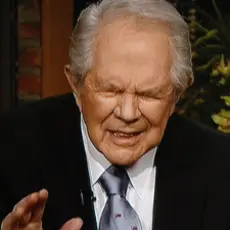After Pat Robertson ranted about People For the American Way and other groups that listen to him and tell other people what he said—a process Robertson referred to, ironically, as the “squelching” of his speech—his guest applied the same argument to the culture war in general. “Americans who believe in traditional values are being forced to whisper,” intoned the CBN reporter introducing South Carolina Sen. Jim DeMint. According to DeMint, the Religious Right is losing its “freedom of speech.”
I’ve really seen a lot of intimidation around South Carolina and around the country. People are afraid to say certain things are wrong and to make value judgments because they have been told that that’s hateful and it’s intolerant. …
Before the sixties, we knew abortion was wrong, and sex outside of marriage, and unwed births, pornography, homosexuality. Yet if you look now, the official or at least implicit position of the government [is] that all these things are right. And if you say they’re wrong, you’re going to be called down in the media, in the schools, and even in the churches. …
What we’re losing is our freedom of speech.
And just because our position might have a faith component, or a connection to some religious belief, that doesn’t mean we don’t have a right to speak it. And it shouldn’t mean that public policy shouldn’t reflect good ideas just because they have a religious connection.
DeMint’s charges of censorship and intimidation will come as a real surprise to readers of this blog, as we have quoted extreme statements by Religious Right activists, writers, and politicians at length on a daily basis for years. The senator seems to be arguing that his far-right opinions and legislation ought to be immune from criticism, and that disagreement with him or his allies (“calling him down,” as he put it) is the same thing as censorship. Does it really need to be said other people have the same freedom of speech he has—even those who disagree with him?
It’s also hard to credit DeMint’s claim that political arguments from religious faith are being suppressed, given how often both major presidential candidates talk about their personal faith or how Christian values should be reflected in public policy.





